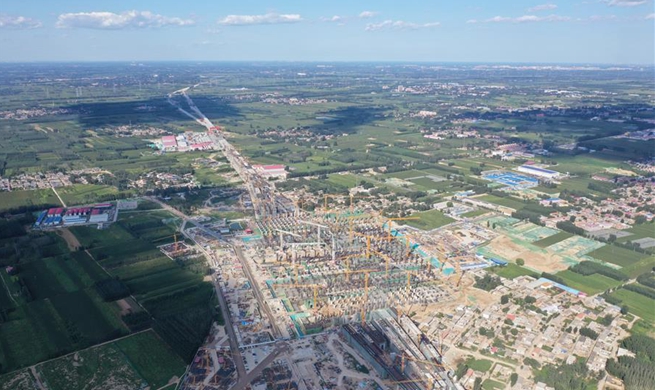CHICAGO, Sept. 5 (Xinhua) -- A study posted on the website of the University of Chicago (UChicago) shows that in genetic forms of Alzheimer's, a process called neurogenesis, the creation of new brain cells, can be disrupted by the brain's own immune cells.
Previous research has shown that when healthy mice are placed into an "enriched" environment where they can exercise, play and interact, they have a huge increase in new brain cells being created in the hippocampus, the part of the brain that is important for memory. But when mice carrying mutations to presenilin 1 (PS1) and presenilin 2 (PS2) are placed in an enriched environment, they don't show the same increase in new brain cells. They also start to show signs of anxiety, a symptom often reported by people with early onset Alzheimer's.
The researchers then focused on microglia, a kind of immune cell in the brain that usually repairs synapses, destroys dying cells and clears out excess amyloid beta, a protein that accumulates in the brain as the disease progresses.
When they gave the mice a drug that caused microglial cells to die, neurogenesis returned to normal, the mice with presenilin mutations were then placed into an enriched environment and they were fine; they didn't show any memory deficits or signs of anxiety, and they were creating the normal, expected number of new neurons.
"It's the most astounding result to me," said Sangram Sisodia, a professor of neurosciences at UChicago. "Once you wipe out the microglia, all these deficits that you see in these mice with the mutations are completely restored. You get rid of one cell type, and everything is back to normal."
Sisodia thinks the microglia could be overplaying their immune system role in this case. Alzheimer's disease normally causes inflammation in the microglia, so when they encounter newly formed brain cells with presenilin mutations they may overreact and kill them off prematurely.
This discovery about the microglia's role opens another important avenue toward understanding the biology of Alzheimer's disease.
"I've been studying amyloid for 30 years, but there's something else going on here, and the role of neurogenesis is really underappreciated," Sisodia said. "This is another way to understand the biology of these genes that we know significantly affect the progression of disease and loss of memory."
The study has been published in the Journal of Neuroscience.

















